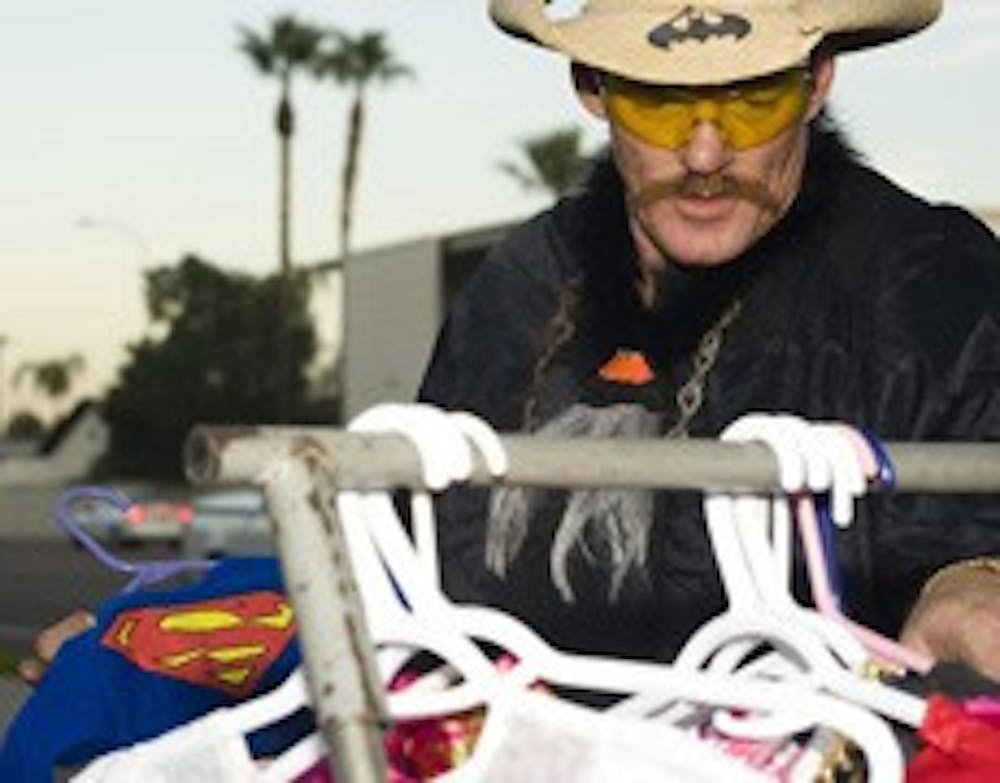While seeing ghosts might be common today for Halloween, a recent poll suggested it's pretty common year-round as well.
In an Associated Press poll, conducted by Ipsos Public Affairs from Oct. 16 to 18, 34 percent of those surveyed said they believe in ghosts and 48 percent believe in extra-sensory perception, or ESP.
Poll results also showed that 19 percent of people believe in spells or witchcraft and 34 percent believed in unidentified flying objects, or UFOs.
The poll used 1,013 adult subjects with a margin of error of about +/- 3 percent.
In today's society, the poll findings shouldn't be a big surprise, said Daniel Ramirez, an assistant professor in religious studies.
"Supernatural or divine beings are part of western culture and have always been there, even back in Puritan New England," Ramirez said.
Superstitions or beliefs about spirits have historically always been a fabric of society, although beliefs in psychic abilities are a more modern phenomenon, Ramirez said.
"(These beliefs) are in all historical periods and all cultural regions of the world, and they've been witnessed in different ways and forms," Ramirez said.
Belief in supernatural or spiritual phenomena is less about a particular religion and more about a broad human experience, he said.
In the poll, 2 percent of those surveyed consider themselves very superstitious and 18 percent consider themselves somewhat superstitious. On the other hand, 23 percent consider themselves not too superstitious and 57 percent consider themselves not superstitious at all, according to the poll results.
In the poll, 17 percent of those surveyed said they were the most superstitious about finding a four-leaf clover.
Top superstitions also included walking under a ladder and the groom seeing the bride before a wedding, each recording 13 percent, according to the poll.
Adam Cohen, a psychology professor, said psychologists have speculated that there's common underlying brain architecture in thinking about people and in thinking about supernatural figures.
"From a biological perspective, the findings aren't surprising because the same biological systems that help us interact with people could make us perceive people, or ghosts, that might not be there," Cohen said.
Some psychologists have theorized that a lot of the same brain systems are involved in believing in a person that is there and believing in supernatural people, he said.
Whether these theories are true or not, history junior Alexia Stockton is a firm believer either way.
She was raised to believe in ghosts in her grandmother's house due to recounts of paranormal experiences from her mother and aunt.
Experiences include her aunt seeing red eyes outside the window, and her cousin's crib mobile turning on its own, she said.
As for the poll results, Stockton said she thinks the reported numbers are lower than what Americans may actually believe.
"I think a lot of people aren't going to say that they believe in that stuff, and many people associate miracles with coincidences," Stockton said. "Just because it can't be proven makes it harder to accept."
Alicia Chavez, an interior design freshman, said the poll results sounded accurate due to the abundance of TV shows dealing with the paranormal.
"If [television companies] make the shows and people are watching them, then I'm sure some people must believe it or else they wouldn't watch it," Chavez said.
Chavez said she believes in ghosts, but not the ones one would see in Casper.
"I believe that there's got to be something after this life," she said. "Why not ghosts?"
Reach the reporter at: amanda.chan@asu.edu.




